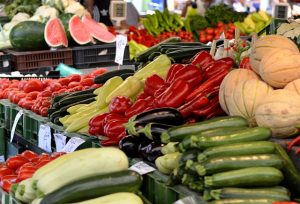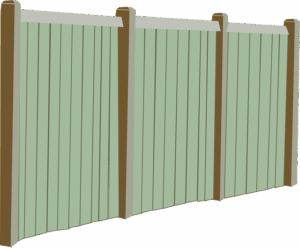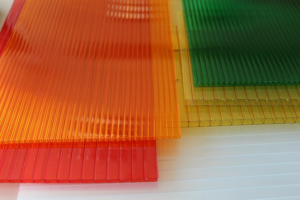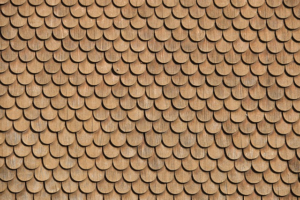Eco-Friendly Approaches to Yard Waste Removal and Recycling
Effective yard waste management is crucial for environmental sustainability, as it minimizes methane emissions from landfills and promotes ecological health. Home composting is a sustainable approach to transforming organic materials like leaves…….

Effective yard waste management is crucial for environmental sustainability, as it minimizes methane emissions from landfills and promotes ecological health. Home composting is a sustainable approach to transforming organic materials like leaves, grass clippings, and garden trimmings into nutrient-rich humus, enriching soil quality and reducing the need for chemical fertilizers. Community Collection Programs offer collective solutions for yard waste disposal and recycling, facilitating the conversion of organic matter into compost, which benefits both local agriculture and broader environmental sustainability efforts. These programs also educate on efficient yard maintenance to minimize waste generation and encourage using yard waste as a valuable resource rather than a problem. Yard Waste Removal and Recycling initiatives employ mulching and chipping techniques to conserve landfill space, support sustainable resource management, and provide materials like wood chips for landscaping. Anaerobic digestion stands out as an innovative method within these initiatives, transforming yard waste into renewable biogas and biomethane while producing soil-enriching digestate. These practices not only reduce greenhouse gas emissions but also offer a circular solution to waste management, contributing to both local environmental health and global sustainability goals.
Navigating the complexities of yard waste management is a pivotal aspect of sustainable living. As communities grapple with the environmental impact of yard waste, it’s crucial to explore innovative solutions for its removal and recycling. This article delves into a spectrum of strategies, from composting at home to advanced technologies that transform yard waste into valuable resources. We will examine each facet, including community collection programs, mulching and chipping, anaerobic digestion, and the creation of beneficial insectaries and habitats for wildlife conservation. By understanding the role of landscaping practices in reducing waste and the regulatory frameworks governing disposal and recycling, homeowners and municipalities alike can contribute to eco-friendly yard waste management. Join us as we explore the current landscape and future trends in this vital environmental domain.
- Understanding Yard Waste and Its Environmental Impact
- Composting at Home: A Sustainable Solution for Yard Waste
- Community Collection Programs: Local Solutions for Yard Waste Disposal
- Mulching and Chipping: Transforming Yard Waste into Usable Materials
- Anaerobic Digestion: Turning Yard Waste into Renewable Energy
Understanding Yard Waste and Its Environmental Impact

Managing yard waste effectively is crucial for maintaining healthy landscapes while mitigating environmental impacts. Yard waste, comprising grass clippings, leaves, branches, and other organic matter from garden maintenance, can significantly contribute to landfill waste if not managed properly. This organic material, when decomposed in a landfill, produces methane, a potent greenhouse gas. In contrast, through yard waste removal and recycling programs, communities can transform this waste into valuable resources. Composting is one such solution that allows for the breakdown of yard waste into nutrient-rich soil amendments, which can then enhance soil health and reduce the need for chemical fertilizers. Furthermore, mulching returned yard waste to the soil conserves moisture, suppresses weeds, and improves soil structure, leading to a reduction in water usage and the need for pesticides. Yard waste recycling not only diverts material from landfills but also supports sustainable landscaping practices that contribute to carbon sequestration and biodiversity. By adopting yard waste removal and recycling methods, individuals can play an active role in promoting environmental stewardship and fostering resilient ecosystems within their own backyards.
Composting at Home: A Sustainable Solution for Yard Waste

Engaging in composting at home is an effective sustainable solution for managing yard waste. By transforming organic materials such as leaves, grass clippings, and garden trimmings into nutrient-rich humus, homeowners can significantly reduce their environmental footprint associated with traditional yard waste removal and recycling methods. This process not only diverts waste from landfills but also enriches the soil, promoting healthier plant growth and reducing the need for chemical fertilizers. Composting encourages a closed-loop system where natural processes are leveraged to recycle valuable nutrients back into the Earth. It’s a simple yet profound way to contribute to sustainability, as it minimizes greenhouse gas emissions that would otherwise be released from decomposing organic matter in landfills.
Implementing a home composting system is a straightforward endeavor that requires minimal space and investment. A variety of compost bins or piles can be set up based on the available area, local climate conditions, and personal preference. The key to successful composting lies in balancing green (nitrogen-rich) and brown (carbon-rich) materials to create an optimal environment for microbial activity. This balance accelerates the decomposition process and results in a high-quality compost that can be used to nourish gardens and landscapes. By adopting this sustainable approach to yard waste, individuals play a pivotal role in fostering a healthier planet and promoting eco-friendly yard waste removal and recycling practices within their communities.
Community Collection Programs: Local Solutions for Yard Waste Disposal

Community Collection Programs represent a cornerstone in the sustainable management of yard waste, offering residents a collective approach to disposal and recycling. These programs are designed to streamline the process of yard waste removal by providing designated periods during which municipalities or private contractors collect organic materials such as leaves, grass clippings, and brush from homes. This not only reduces the burden on individual property owners to manage this waste on their own but also promotes the recycling of organic matter into nutrient-rich compost. The diversion of yard waste from landfills is significant, as it minimizes methane emissions that result from the decomposition of organic materials in anaerobic conditions. By participating in these programs, communities can effectively transform what was once considered waste into valuable resources for soil enhancement and local agricultural endeavors, thereby supporting a more sustainable ecosystem within their region. Additionally, these initiatives often include educational components to inform residents about best practices for yard maintenance that minimize waste generation and encourage the use of yard waste as a beneficial resource rather than an environmental challenge.
Mulching and Chipping: Transforming Yard Waste into Usable Materials

Yard waste, a significant component of municipal solid waste, can be effectively managed through mulching and chipping, transforming it into valuable resources for soil enrichment and erosion control. These processes not only aid in reducing landfill use but also contribute to the sustainable management of natural resources. Mulching involves grinding yard waste like leaves, grass clippings, and small branches into finer particles that can be spread over the soil as a protective cover. This practice significantly accelerates the decomposition process, improves soil quality, and retains soil moisture, thereby promoting plant growth and reducing the need for synthetic fertilizers.
Chipping, on the other hand, reduces larger yard waste items like branches and woody material into wood chips that can be utilized as a ground cover in landscaping or added to compost piles to enhance their decomposition rate. The resulting chips also serve as an effective barrier against weeds and can be used for pathways or as mulch. Both mulching and chipping are integral components of yard waste removal and recycling programs, which divert organic material from landfills and repurpose it beneficially. These innovative solutions not only contribute to environmental sustainability but also offer practical alternatives for homeowners and landscapers to manage their yard waste responsibly. Yard waste removal and recycling programs are becoming increasingly popular as communities recognize the importance of these eco-friendly practices in promoting a healthier environment.
Anaerobic Digestion: Turning Yard Waste into Renewable Energy

Anaerobic digestion is a robust process that converts yard waste into renewable energy, offering a sustainable solution for managing organic material generated from gardening and landscaping activities. This method harnesses the natural decomposition process in an environment devoid of oxygen, allowing microorganisms to break down organic matter in the absence of air. By doing so, it produces biogas, which can be upgraded to biomethane, a form of renewable energy that can power homes or even be injected into the natural gas grid. This not only reduces the volume of yard waste requiring disposal but also significantly cuts down greenhouse gas emissions compared to traditional waste management practices. The resulting digestate, a byproduct of this process, is an excellent soil amendment, returning nutrients to the land and completing a cycle that supports both ecological health and energy sustainability. Yard waste removal and recycling through anaerobic digestion thus play a dual role in mitigating climate change and enhancing soil quality, making it a viable option for communities seeking to implement eco-friendly practices. Homeowners and municipalities can adopt this technology as part of their yard waste management strategies, contributing to the broader goals of waste reduction and renewable energy generation.
Yard waste represents a significant environmental concern, yet it also offers an opportunity for sustainable management through various effective solutions. Home composting plays a pivotal role in recycling organic matter, reducing landfill use, and enriching soil health. Community collection programs further facilitate the proper disposal of yard waste, ensuring these materials contribute to community-level sustainability initiatives. Mulching and chipping transform waste into valuable mulch and wood chips that benefit gardens and landscapes. Anaerobic digestion emerges as a powerful method to convert yard waste into renewable energy, showcasing the potential for waste to be both a resource and a source of clean energy. Overall, the strategies discussed—yard waste removal and recycling—are key to creating greener spaces and a healthier planet. Embracing these practices underscores our collective commitment to sustainable living and environmental stewardship.







